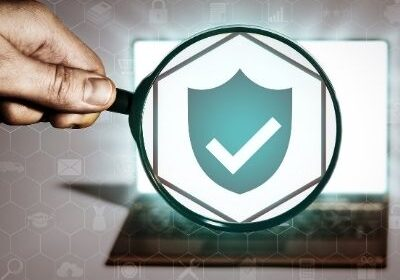CYBERSECURITY EDR
With skyrocketing cyberattacks on businesses, enterprises protect their valuable data, services, and products through endpoint detection and response (EDR) tools.
EDR solutions look to gather and analyze data collected on every endpoint of an organization, identifying malicious activities and potential threats that aren’t visible to traditional antivirus. In addition, it works simultaneously with the IT security team, providing them with critical information about incidents that might compromise the entire business.
So, in this article, we aim to give you a deeper understanding of Why EDR as we talk about the following:
- What is endpoint
- What is EDR Software
- Why EDR is important for your business
- EDR vs Antivirus
WHAT IS AN ENDPOINT?
Before we talk more about Why EDR, it’s essential to understand first what endpoint is and why your business needs it.
An endpoint is any Internet of Things (IoT) device connected to a network. It exposed most vulnerabilities to a hacker, as humans control them. These devices include even those machines you think hackers won’t compromise, such as laptops, desktops, mobile phones, tablets, servers, virtual environments, and even printers.

Why EDR Software?
Endpoint security is the process of protecting network endpoints against malicious activities, attacks, or threats. These services might include antivirus, email filtering, web filtering, and firewall services. Without them, an enterprise could lose valuable data that might result in business disruption or legal issues.
Because of this, EDR has become a crucial part of security teams. It enables experts to proactively monitor, detect and remediate or isolate threats on any endpoint as an attack happens.
Why EDR irresistible? It’s because of its capability to protect a business, which goes beyond what antivirus or antimalware tools can do. EDR tools collect and analyze data from all endpoints 24/7, providing an IT security team with a bird’s eye view across multiple devices connected with the network.
It also maximizes its ability to analyze behavior, enabling them to detect any malicious activity that is currently taking place in the system.
EDR is essential for your cybersecurity
Offers improved data monitoring and management
EDR tools collect and monitor data and store it in a database on endpoints. You can use the stored data to determine any security threats’ root issue and determine potential cyber threats.
Provides built-in data analytics
EDR identifies security threats in the early stage of their development. Then, it will send an alert to the IT security team, as it comes with analytical tools that provide cloud-based intelligence, machine learning, statistical modeling, and more. These features ensure that the IT security team does not worry about false positives.
Compatible with other security tools
EDR tools are versatile and can work with other security solutions. In addition, this capability delivers improved security, as it can work seamlessly with malware analysis, network forensics, SIEM tools, threat intelligence, and more.
It does not disrupt business operations and services
Unlike conventional antivirus software, EDR detects and responds to threats without interfering with the endpoints’ functionalities. With this, it reduces service downtime and operation disruption within the business.
Top Must-have for Businesses
Meanwhile, an EDR tool is also considered one of the most crucial business keys to success. The benefits of endpoint security include:
Protection for devices
It protects each endpoint against ransomware and Trojans and file-based and file-less script attacks and malicious JavaScript, VBScript, PowerShell, and other macros.
Cost-efficient
EDR prevents necessary remediation of malware-ridden devices, protecting confidential data and other intellectual properties. It also frees up IT staff to focus on core business objectives.
Compliance satisfaction
EDR allows businesses to meet data security regulations, which require special precautions against data theft.
EDR vs Anti-virus
Why EDR is a wiser choice than antivirus? It delivers more comprehensive features when detecting and containing threats within the network.
Unlike EDR, an antivirus solution only follows a signature-based threat detection system. This process works fine for identifying and fighting known malware, such as Trojans and worms. However, it does not fight unknown threats.
EDR tools detect unusual activities within the network. Hence, it sees malicious incidents that might be security breaches. It also creates a database on each endpoint as it analyzes it to learn new threat patterns.
In addition, when an attack occurs, it uses its forensic tools that determine the root cause of the problem even before it affects more devices.
In short, EDR proactively protects the network against threats, while antivirus is a reactive tool that fights only recognized threats.
Key Takeaways
EDR is important to keep your business safe and secure against cyberattacks. Xcitium EDR is one of the go-to cybersecurity tools of the biggest clients in the market. It offers unrivaled visibility, allowing the IT security team to detect and respond to an attack even before it causes damage to the network.
Learn more about Xcitium EDR.
